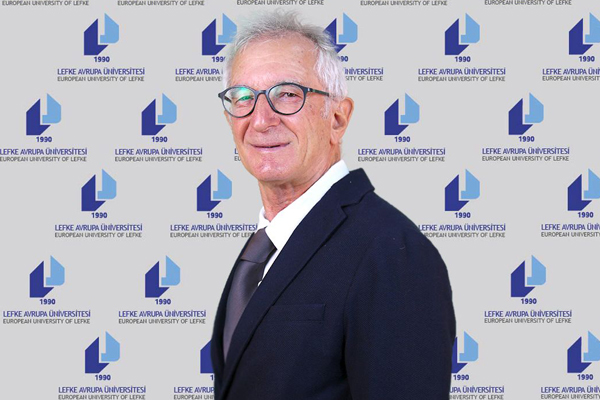EUL Academician Açıkada made a statement on the occasion of “World Heart Day”

Physical activity is essential for heart health
European University of Lefke (EUL) School of Physical Education and Sports Director Prof. Dr. Caner Açıkada made statements due to “World Heart Day”.
Prof. Açıkada, who provided information on the subject of “Heart Health and Physical Activity”, stated: “The number of people dying from heart diseases is increasing every year due to inactivity and eating habits. The World Health Organisation and the American Sports Medicine frequently remind that one of the most important ways to keep the heart healthy and strong is to do physical activity” and continued his words as follows; It is recommended that people of all ages should do physical activity and improve the heart and circulatory system. Therefore, people of all ages are recommended to keep their heart and circulatory systems healthy. In order to improve the heart and circulatory systems, light and moderate exercise such as walking, jogging, swimming and cycling for not less than 15-20 minutes is recommended. The World Health Organisation recommends physical activity for people of all ages and emphasises that exercise should not be less than 150 minutes of moderate intensity or 75 minutes of vigorous exercise per week. It is stated that physical exercise strengthens many muscles and organs, especially the heart muscle. In terms of health, doctors have emphasised movement and heart rate with the slogan “Stay on your feet, stay alive!”. Since too much time is spent in front of the computer, computer desks should be organised in a standing position. The Mexican Ministry of Education has recommended that the desks in the classrooms where children and young people are most sedentary should be arranged like bicycle ergometers and that bicycle ergometers should be used to prevent inactivity during lessons. It is emphasised that physical exercises should pay attention to the cardio-vascular (heart-circulatory) system, the strength of the main muscle groups in our body, the flexibility of the main muscle groups and the nutritional elements eaten and drunk, and attention should be paid not to create excess fat weight.
Açıkada continued his explanations as follows; Studies have shown that people, regardless of their weight and appearance, should do physical activity and protect their hearts. As the human body moves, it develops some enzymes and moves more easily with these enzymes and can feel healthier and fitter. Physical activity is recommended to be performed at intensities between 50 per cent and 70 per cent of the maximum heart rate. This level of intensity provides cardio-vascular health and encourages and improves fat burning. Again, studies have shown that only 25 per cent of the society has the desired level of physical activity. It is seen that 63% of our young people between the ages of 15-19 do not move, this rate of movement is similar to the movement habits of those over the age of 55 and they are the most sedentary age groups of our society. It was observed that the most active age group in terms of physical activity level was 35-44 years old. We see that one of the most sedentary groups of our society is young people going to university with 72%. People’s physical activity levels increase; it is seen that it is possible with the work they do. However, it is seen that the most active group is the employees.
The World Health Organisation and Sports Physicians recommend approximately 30 minutes of exercise every day. While 2-3 physical activities per week were recommended in the 1990s, in recent years it is recommended to exercise every day. In terms of exercise, walking, running, skiing, cycling, swimming, fitness, aerobics, tennis, football, basketball and many other different exercises are emphasised. Therefore, we should not grow old because of inactivity at a young age.
Apart from the older generations, we need to teach our new children and young people the habit of movement and provide an environment where they can do physical activity in their daily lives. For this reason, physical education teachers and coaches have a great responsibility. Our universities should carry out programmes to teach their young population the habit of exercising and doing sports. We should raise awareness among university students about a healthy cardiovascular system and instil the awareness and culture that heart health depends on physical activity.
